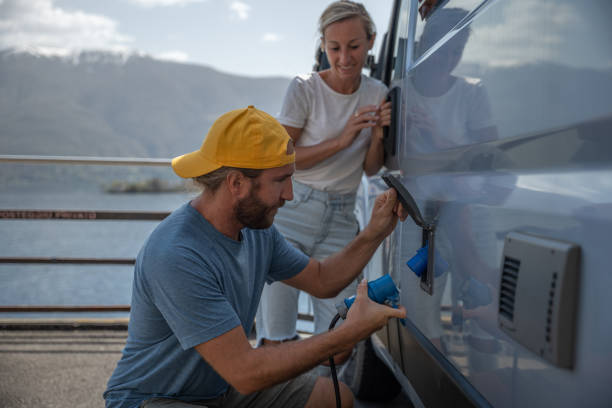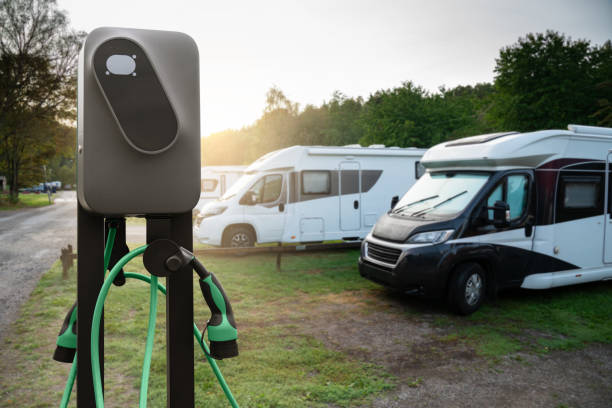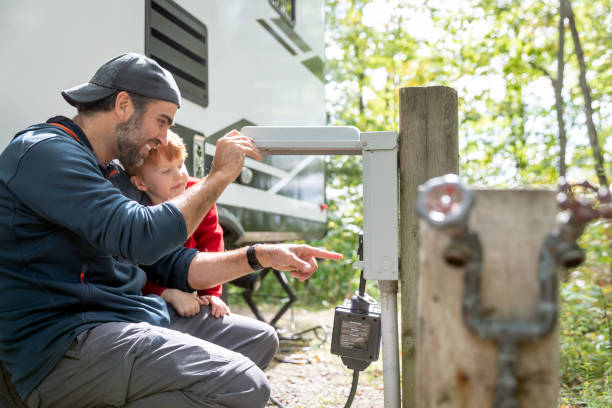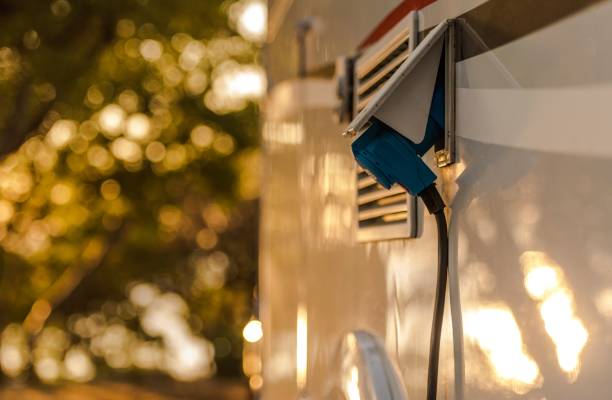Electric vehicles are already transforming passenger transportation, and the next frontier is RVs. While the electric RV (e-RV) segment is still in its early stages, momentum is building. Major manufacturers are investing, early adopters are buzzing on social media, and eco-conscious travelers are asking a new question: can I rent an RV that’s electric?
This article explores where electric RVs stand today, what’s holding them back, and how they’re likely to reshape the rental market over the next 5–10 years.
Table of Contents
- What Counts as an Electric RV Today?
- Why Travelers Are Asking for Electric RVs
- Challenges Slowing Down e-RV Adoption
- How Fleet Operators Can Prepare Now
- The Competitive Advantage of Going Electric First
- What the Next Decade Holds for EV Rentals
- Final Thoughts: Green Is the Long Game
1. What Counts as an Electric RV Today?

Today’s electric RVs fall into a few categories:
- Concept or Prototype Models: Companies like Winnebago and Thor have showcased fully electric Class B and Class C models. These are not yet in full production but signal serious industry intent.
- DIY Conversions: Enthusiasts are converting Sprinter vans or short buses with EV drive systems and battery banks, typically paired with solar.
- Hybrid Solutions: Some rental units advertise as "electric" because of robust solar setups, lithium battery systems, and inverter packages—though the drivetrain is still gas or diesel.
While fully electric RVs are rare on the road today, what we’re seeing is a transition period, where renters care as much about renewable energy and self-sufficiency as they do about the fuel source.
2. Why Travelers Are Asking for Electric RVs
Demand isn’t driven just by hype—it reflects real shifts in traveler values:
- Sustainability: Many renters want a smaller environmental footprint, especially in national parks or nature-heavy destinations.
- Silent Travel: EVs are quieter, reducing noise pollution at campsites.
- Self-sufficiency: Solar power and electric systems enable true off-grid living without a generator.
- Curiosity: Many guests who drive EVs at home are eager to try the experience on the road.
In short, renters are aligning travel decisions with lifestyle and values—and that’s exactly where electric RVs deliver.
3. Challenges Slowing Down e-RV Adoption

Despite rising demand, there are real barriers holding back mass adoption:
- Limited Range: Most electric drivetrains today top out around 150–250 miles per charge—lower under load or in cold weather.
- Charging Infrastructure: Campgrounds and RV parks are not yet outfitted with fast EV chargers, making trip planning difficult.
- Cost: Early electric RVs will likely cost 20–50% more than gas counterparts.
- Weight and Power Demand: Batteries are heavy, and RVs are already load-intensive vehicles.
Still, these challenges are shrinking year by year. As battery tech improves and more infrastructure rolls out (especially in national parks and along highway corridors), electric RVs will become increasingly practical.
4. How Fleet Operators Can Prepare Now
Even if you’re not ready to buy a fully electric RV, there are steps you can take to ride this wave early:
- Invest in solar + lithium upgrades: Many renters care more about quiet, off-grid, renewable power than fuel type.
- Highlight eco features in listings: Composting toilets, water-saving fixtures, and green materials are selling points.
- Educate guests: Add sections to your welcome emails or listing that explain your sustainability efforts.
- Scout EV charging locations: Identify nearby chargers or test routes that accommodate e-RVs. Add this to your renter guide.
Going "eco-optimized" now puts you ahead of the curve—and positions you as forward-thinking in a competitive market.
5. The Competitive Advantage of Going Electric First
Being first in a market always offers strategic upside. For electric RVs, early adopters will:
- Command premium pricing: Guests will pay more for a rare, innovative experience.
- Gain media/influencer attention: Many vanlife creators are seeking electric rigs to feature.
- Build brand equity: Green travel and innovation go hand-in-hand. Operators who lead here build loyalty and trust.
- Attract strategic partners: Brands in the solar, EV, or sustainable travel space are looking to partner with fleets.
Even one electric or heavily solar-optimized RV can create outsized value in bookings, visibility, and partnerships.
6. What the Next Decade Holds for EV Rentals

By 2030, we expect to see:
- Commercially available Class B and Class C EVs from major brands
- EV charging stations as standard at state and national park campgrounds
- Fully solar-powered towables designed for ultra-lightweight electric SUVs
- Growth in EV campervan conversions for city-to-park getaways
Much like Tesla reshaped what drivers expect from a vehicle, e-RVs will eventually redefine what renters expect from a road trip.
Operators that adopt early will have:
- Data on usage patterns
- Renter trust
- Listings with verified performance
That edge is worth building now.
7. Final Thoughts: Green Is the Long Game
The future of RV rentals isn’t just more bookings—it’s better bookings.
Electric and eco-optimized RVs will:
- Serve the next generation of environmentally conscious renters
- Align with global trends in EV adoption and climate action
- Offer quieter, more efficient, and more desirable travel experiences
Whether you're a TM managing a single unit or an investor building a regional fleet, now is the time to plan for electrification.
At RV Management USA, we’re already working with owners to prepare for the green transition—helping you position your rentals for what’s next.
Because the future isn’t just electric.
It’s rented.
– RVM Team

